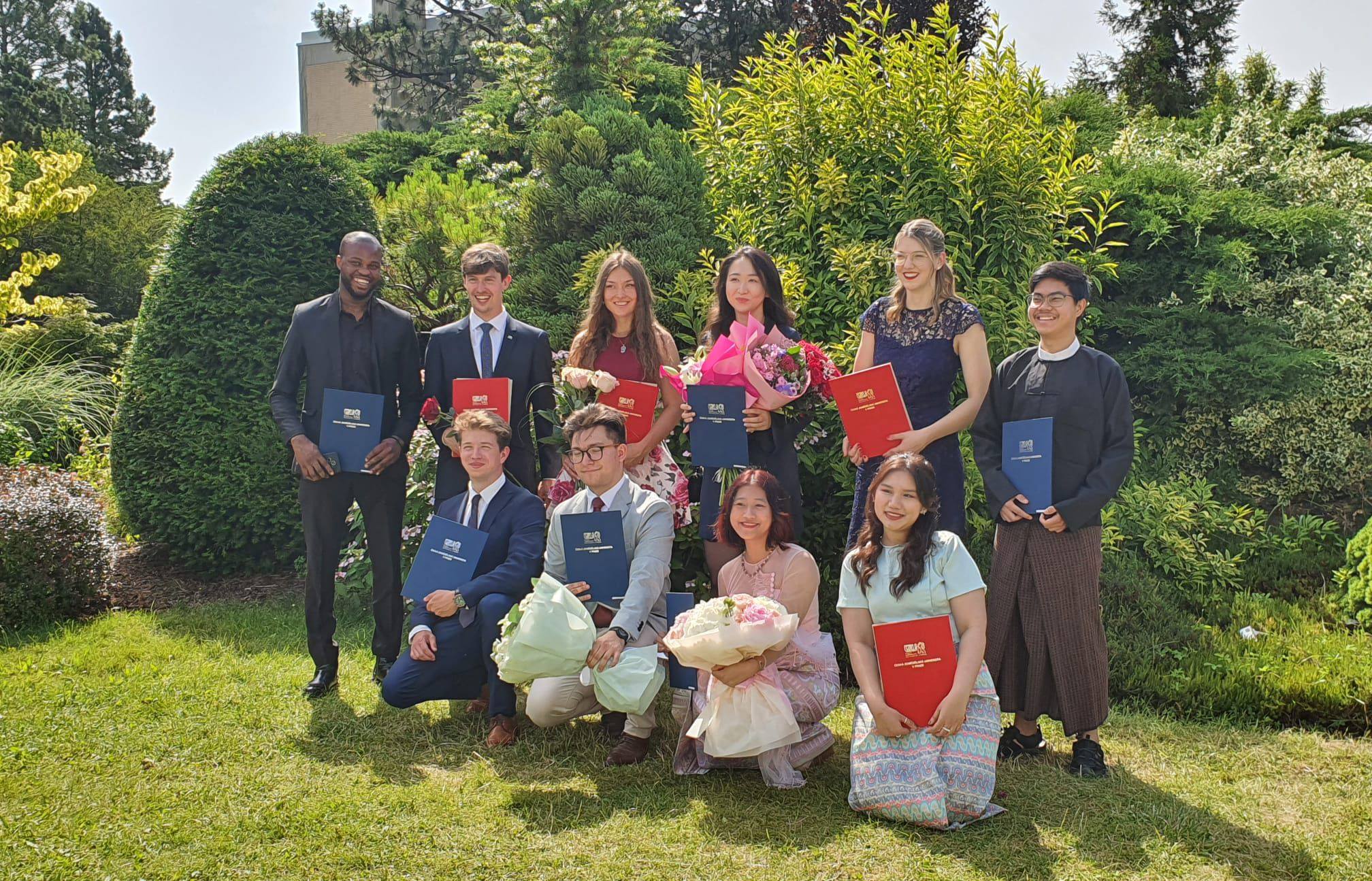Congratulations 2025 BRT Graduates!
This year, we are proud to celebrate the achievements of two master’s students and one bachelor’s student from the BioResources and Technology (BRT) Division, who have all successfully defended their theses. Their hard work and dedication have contributed valuable insights to the field, and we are excited to share more about their research endeavors.
Enjoy learning about their impressive work!
Juliana Bempomah Duodu – was a master´s student at the BioResources and Technology Division under the supervision of Associate Professor Dr. Hynek Roubík.
Her research focused on “Factors Influencing Household Adoption and Use of Biogas Technology: The Case of Ashanti Region of Ghana”.
Her topic was exploring the factors that influence household decisions on the adoption of biogas technology in the Greater Kumasi area, focusing on economic affordability, social acceptance, and the impact of policy frameworks and government incentives. A quantitative research design was employed, utilizing a structured survey to collect data from a sample of 384 households, with 379 valid responses analyzed. The study concludes that economic affordability, policy clarity, and social awareness play critical roles in biogas adoption. Targeted financial interventions, regulatory reforms, and public education initiatives are necessary to increase uptake. These findings provide policy-relevant insights for government agencies, stakeholders, and development organizations. Future research should explore stakeholder perspectives and rural-urban adoption disparities to develop comprehensive policy frameworks for biogas technology dissemination.
Our gratitude also goes to Dr. Iryna Vaskina (University of Life Sciences in Poznań, Poland and Sumy State University, Ukraine), who was the reviewer and opponent of this thesis.
Congratulations to Juliana Bempomah Duodu on completing his MSc studies!
***
Maame Mesiwah Andzie-Quainoo – was a master´s student at the BioResources and Technology Division under the supervision of Associate Professor Dr. Hynek Roubík.
Her research focused on: “Agrivoltaics in Ghana: Challenges and opportunities. A case study of Upper West Akim”.
Her topic was assessing the potential feasibility, opportunities, and challenges associated with the implementing Agrivoltaics in Ghana using the case of Upper West Akim District. A structured questionnaire was used to collect information from 422 respondents within the district and analysed with SPSS. Secondary data was also used to access solar irradiation within Ghana and how it could impact Agrivoltaics systems at different zones. Findings from the study revealed that there was very low awareness of agrivoltaics technology within the district with 99.1% of the respondents indicating no prior knowledge of Agrivoltaics before the survey. However, when they were introduced to the concept using videos and pictures, a significant number (84.3%) expressed interest in participating in AVS projects, with as many as 45% willing to enroll in training programs. Responses indicated that study participants identified several perceived benefits of Agrivoltaics.
Our gratitude also goes to Dr. Iryna Ablieieva (Linkoping University, Sweden and Sumy State University, Ukraine), who was the reviewer and opponent of this thesis.
Congratulations to Maame Mesiwah Andzie-Quainoo on completing his MSc studies!
***
Jerry Efosa Osawaru – was a bachelor´s student at the BioResources and Technology Division under the supervision of Associate Professor Dr. Hynek Roubík.
Her research focused on: “Review of Factors Affecting the Acceptance of Biogas Technology in Nigeria”.
Her topic was a review based on the literature that analyses data on biogas development in Nigeria, with a focus on the factors that influence the acceptance of biogas technology. The findings indicate that the limited uptake and development of biogas in Nigeria is attributable to a combination of factors. These include the country’s heavy reliance on fossil fuels, poor economic structure, inadequate and unregulated waste management systems, lack of supportive government policies, weak implementation of existing policies, discontinued research efforts, insufficient funding, infrastructural limitations, and other technical, market, institutional, and socio-cultural barriers.
Our gratitude also goes to Dr. Chama Theodore Ketuama (Czech Unviersity of Life Sciences Prague, Czechia), who was the reviewer and opponent of this thesis.
Congratulations to Jerry Efosa Osawaru on completing his BSc studies!
BSc and MSc graduates from previous years can be found at:
- 2023:
- 2022:
- 2021:
For more details on BRT activities, subscribe to our newsletter or follow us on social media for regular updates and highlights.


